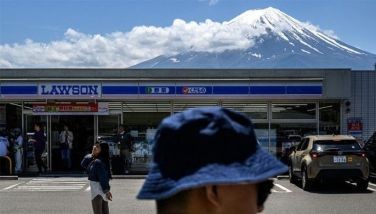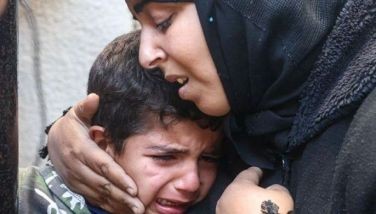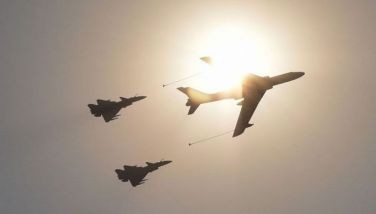Allies help Syrian economy find better equilibrium
DAMASCUS (Xinhua) - The Syrian government had weathered its worst economic crisis thanks to the support of friendly countries, the country's top economist said, but adding that the economy still falls short of true recovery, at least in the foreseeable future.
Iran, Russia among other friendly countries had been supporting the Syrian government politically, militarily and economically, Qadri Jamil, Syrian deputy prime minister for economic affairs and the minister of domestic trade and consumer protection, told the Financial Times, indicating that all transactions in the country had been done through the Iranian rial, Russian ruble to avert the western sanctions on Syria. HELP FROM IRAN, RUSSIA
The deputy prime minister said the allies were supporting Syria with around $500 million per month for financial dealings involving oil and open insurance lines, which would definitely support the war-torn country in its counter-attack against what he called "the foreign conspiracy to drown the Syrian pound."
He continued that Syria has an unlimited credit line with Tehran to import oil and food, and the Damascus had replaced its former dealings with the US dollar and the Euro with the Iranian and Russian currencies.
Syria's oil exports alone cost around $500 million a month, he contended, describing the economic situation as "very complicated and difficult, but it hasn't reached the point of no return."
Syria's oil production dipped from 380,000 barrels a day before the crisis to around 20,000 barrels following the repetitive attacks against oil and gas wells in the country. SYRIAN POUND PLUMMETS
The reassurance came at a time when the Syrian people are preoccupied with the expenses of the imminent holy month of Ramadan amid a further projected fall in the cost of living owing to the currency's dive and the hike in consumer commodities' prices.
Since mid June, the pound has sharply depreciated against the dollar and it dropped from 170 pounds per dollar to around 205 pounds within two weeks, inflaming the prices of all goods in the markets.
Jamil had accused Saudi Arabia, the United States and Britain of attempts to undermine the Syrian currency.
"Riyadh, Washington and London manage a conspiracy to undermine the Syrian currency by flooding Lebanon and Jordan with Syrian pounds," he said.
He accused his government's opponents of launching a "financial war and a military campaign against it through Western sanctions ranging from a ban on the Syrian oil to the prohibition of remittances through banks and credit cards."
Ammar Youssef, a local economist said that without the intervention of the Central Bank of Syria, the pound would have been sold at 2,000 per dollar.
He added the pound will recover once the conflict in the country is drawn to an end, and the wheel of the Syrian economy will move again through new investments, which will eventually lead to the return of the dollar to less than the pre-crisis price.
For his part, Prime Minister Wael al-Halqi assured recently that the national economy was balanced and adapting itself to the developments and the complexities of the crisis, which has entered the third year, through a package of measures the government is taking in line with the immediate variables.
- Latest
- Trending

































